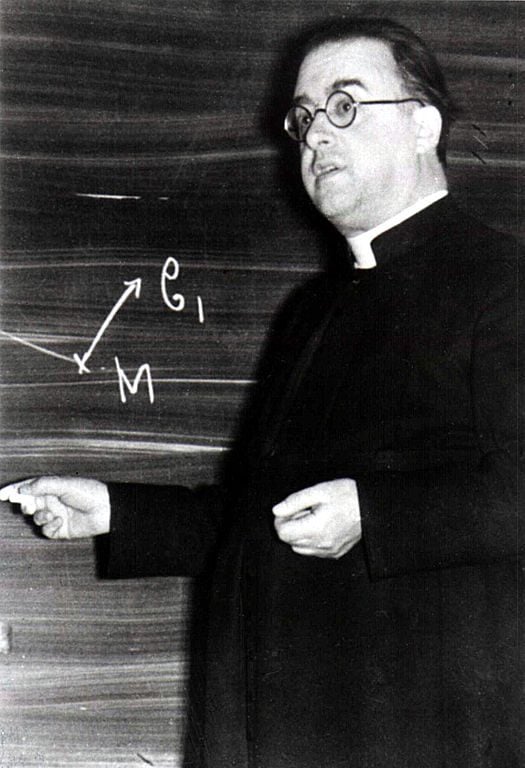(11-16-12)
Metropolitan Damaskinos (Papandreou) of Adrianoupolis (Eastern Orthodox) stated:
Marriage according to the Lord and celibacy for the Lord’s sake are two different spiritual paths, it is true, but both are incontestably valid for a true living of the content of the faith.
Of these paths, anyone is free to follow either the one or the other in accordance with his own vocation and particular charisms. The Church equally blesses the two manifestations of the Christian’s spiritual combat, and Orthodox Churches show no preference for one at the expense of the other, preferring not to advance theological reasons in justification of one option rather than another. The choice lies with individual Christians, who thus make themselves responsible for the consequences of their own spiritual combat. . . .Thus Orthodox tradition and practice honour and respect the celibacy of priests and praise their service in the body of the Church; at the same time, they honour and respect the married clergy since, they too, serve the same sacrament of the Church and salvation. The Orthodox Church thus accepts these two forms of service equally and leaves the choice of which it is to be to the individual member, in accordance with his own vocation and particular charisms. For pastoral reasons however, the Church has favoured the institution of celibacy for the order of bishops, and these are chosen exclusively from the celibate priesthood.
(Orthodox Research Institute: “The Orthodox Churches and Priestly Celibacy”)
I was curious, then, about the approximate percentage of Eastern Orthodox and Eastern Catholic priests who are celibate.
The point being, that if celibacy is indeed so valued in “non-Latin” Christianity, as is claimed above, we should expect to see a significant number (maybe one-quarter?, one-third?) of celibate clergy (since they are given the choice). If not, then it seems reasonable to conclude that it is relatively less valued, so that “freedom of choice” becomes in fact, one usual outcome, scarcely distinguishable from the general public.
And that in turn (if true) would be another argument in favor of mandatory celibacy: since if it isn’t required, the norm quickly becomes rare instances of what Paul recommended as a preferred state for clergy. Human nature seems to teach us that what is very difficult usually won’t be chosen unless it is mandatory in some sense. Hence we have the explicitly biblical notion of the evangelical counsels.
I found this statistic:
About 91 percent (575 of 630) of active Greek Orthodox priests in the United States are married.
Over 90 percent of Greek orthodox priests in America are married.
Okay; so if we are to believe these reports, about one in ten Orthodox priests feel called to a celibate state. Here’s another claim:
Ninety-three percent of the Orthodox priests [in America] were married . . .
Therefore, I would conclude from the actual results (assuming these reports are accurate) that celibacy is greatly undervalued in Orthodoxy among the class of clergy; else there would be more than only 7-10% of all Orthodox clergy. The estate in life that St. Paul taught was preferable in terms of undistracted devotion to the Lord, occurs far less among Eastern Orthodox clergy, because it is not required. The end result becomes like the situation in Protestantism: clergy are allowed to marry so virtually all do, and those who don’t are too often regarded with suspicion. I think this is human nature: if an easier path is allowed, almost all take it, whereas difficult things need to be required.
Latin Rite Catholicism thinks celibacy is so praiseworthy and honorable that it chooses to draw its priests almost exclusively from the class of men who agree with Paul and follow one of the evangelical counsels, as regards their own calling in life. I’ve never for the life of me understood the objection to this (even when I was an evangelical Protestant I understood the reasoning of it): what it could possibly be.
What would be the reply to this line of argumentation? I never thought of this before; it just occurred to me last night. One “solution” or middle course (I don’t advocate it myself; I’m just thinking theoretically) might be to have a clergy that is (deliberately, by requirement) 50% celibate and 50% married, so that both callings are equally valued in practice. Otherwise it seems to be an all-or-nothing situation: 99% celibate clergy (a few exceptions for Anglican clergy converts, etc.) or 90-93% married clergy. If the stats are similar in Eastern Catholic clergy (as I strongly suspect now, will be the case), my point is strengthened.
* * * * *
An Orthodox Christian in a Facebook thread denied that there was an innate relationship between celibacy and the priesthood. But if this is so, why, then (if there is not at least a strong correlation), were Jesus and all the disciples either not married or married (like Peter) with an agreement to leave their wives for the sake of ministry: with Jesus actually referring to those who have left wives / families for His sake? Between that and St. Paul’s strong teaching in 1 Corinthians 7, do we not see a sort of biblical / apostolic “preference” towards the state of celibacy for clergy?Of course the ones who are celibate for the sake of the kingdom come from a small “pool,” but then priests are extraordinary men, so I would fully expect them to come from a small and very special sub-class of men in the first place.
There are plenty of opportunities for married ministry. I do it myself: full-time apologetics and evangelism for now eleven years, with four children. One can be a deacon or DRE or youth pastor or teacher in a Catholic school. I don’t have an entire parish to look after, which is the point. It’s very difficult to balance that and a family. Just ask children of Protestant pastors how that often works out. Human beings can only do so much.
Of course no one should be a celibate priest if they aren’t called to it. This is self-evident Existing problems do not cast doubt on the principle: only the selection process.
We draw our priests from a smaller group of men than Orthodoxy does. I don’t see why the Latin system of required priestly celibacy should so often be disparaged. Live and let live . . . We have biblical support for it. Catholicism as a whole has both traditions (since Eastern Catholicism allows a married clergy), so once again we are “both/and” in approach, and we value diversity of opinion and practice.
The goal and task is to find holy men who truly are called to the priesthood and/or celibacy. This is of supreme importance, given the sexual scandals and heterodoxy that have occurred. Liberalism and nominalism are universal problems. I’ve been told (lectured on occasion) that Orthodoxy is magically immune from these forces, but it is not. The Orthodox priest has to live in our sewer-society, just as the Catholic priest has to.
It all goes back to the selection process. If we agree that celibate priests and married priests are both valid, then the Catholic (Latin) Church has to make sure that candidates for the priesthood are called to celibacy, and Orthodoxy has to make sure that a married priest can handle both family and church responsibilities. It’s two very different sets of capabilities and personal needs.













